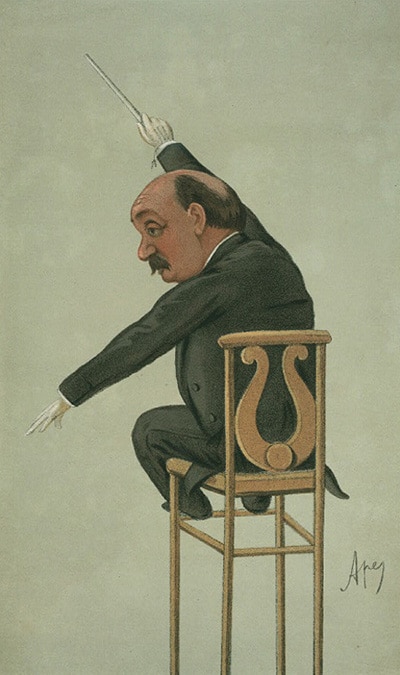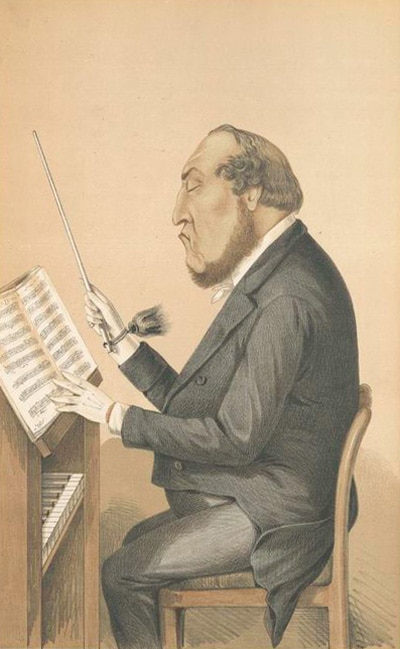“The situation is rather complicated because Maestro himself is not yet in Wrocław…” read the email. The wheels had just come off an interview we’d already spent 10 Polskibus hours (equivalent to around 100 earth-hours) traveling to. “Maestro,” first name Krzysztof, last name Penderecki, written as if there was and could only ever be one. No longer the maestro, but the transcendent figure of classical music “excellence”—always maestro, never maestra—pervading over the orchestra like an ominous musical Cheshire cat, appearing and disappearing at will.
Amid the manifold campaigns to make classical music more accessible, less patriarchal, to take itself less absolutely seriously and to crack a smile—if not a joke—the outdated term is getting slightly grating to read. It was already a lame joke in the 1995 “Seinfeld” episode “The Maestro.” That a composer’s press team, who presumably refer to him in conversation or writing on a semi-regular basis, would employ the term in such a way makes me wonder how far it goes—if I send him a birthday card this year, should I write it to the “maestro”? Penderecki is, of course, a giant of 20th century classical music, there’s even an asteroid belt named after him—but who gains anything from reaffirming this status every single time the man is mentioned?

But “maestro” doesn’t fool anybody. If anything, it reveals a kind of uniquely fragile masculinity that sips time and again from the elixir of self-proclaiming “greatness” in order to reaffirm its own status. The musicians, at least, don’t fall for it; one member of an orchestra joked to me that Penderecki conducts solely from the wrist—a kind of virtuosic pollici verso whose implicit message is that there’s just as much power in a maestro’s hand as is contained in most conductors’ entire bodies. In endless rehearsals the effigy of greatness begins to wear thin. There’s no reason for this not to be the case—talent and respect, which Penderecki built for himself, do not have to be concurrent with cult status, which the strange pedestal-building cultures within classical music shrouded him in. There is no such thing as a Midas—or a maestro—touch.
There’s more to this than a jilted journalist left to wander in the Wrocław winter. The culture within our world runs an entire spectrum—from the easy to laugh at PR buzzword to what our writer Ben Miller dubbed “the cult of interpretive genius,” that ultimately led many people within cultural institutions to turn a blind eye to the actions of James Levine.
In fact, Levine is a perfect example of the maestro complex—complex, because it seems to afflict him (or his lawyers) as such. Even the court documents for the lawsuit he filed against the Met last week refer to him as “Maestro Levine,” which bears the question: Does Levine really think slapping his Maestro prefix on for a court of law will strengthen his case? The answer seems to be a deluded “yes.” Thought it might not be a huge surprise to the Met, whose contract with Levine stated that “No other conductor will receive a higher per performance fee for any opera conducted during Association’s New York season than Mr. Levine except by agreement between the Association and Mr. Levine.” The vulgar implication of this is that a $700,000 fee per season (excluding per performance payments) wouldn’t cut it if somebody else got a bigger piece of the pie—again, the maestro breeds a million-dollar fragility.

That we most likely never bat an eye when seeing somebody described as a maestro testifies to our pavlovian conditioning to supposed excellence. Nobody becomes a maestro by their own self-definition (apart from maybe Levine nowadays), but is held up as such by others. The term continues to do the dirty work of excusing bad behavior, or even of just assuming that everything is OK, that we lesser beings should jostle among each other to bask in the rays of self-affirming excellence. It’s time to stop pandering to the term and let our trigger of admiration be the music itself. ¶

